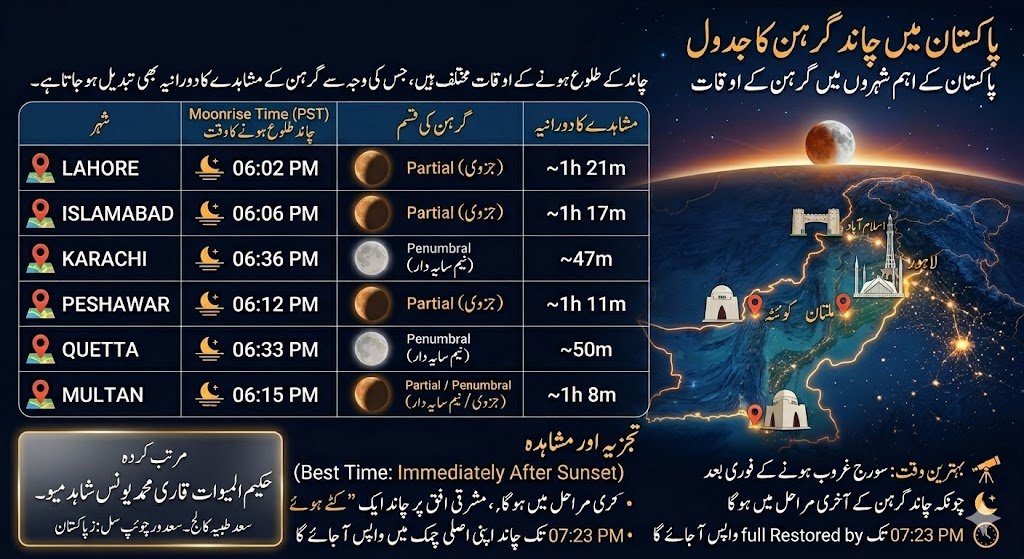Prophetic Medicine: Analysis and Understanding

- Muhammad Radi-ul-Islam Nadwi
Prophetic Medicine: An international conference on the main topic of scientific analysis and understanding was held at Muhammad Yeh College, Malegaon (Maharashtra) on 11-12 December 2023. The keynote speech delivered in it is being recorded below.
(manager)
Khatam-ul-Nabien is the last link in the chain of Prophet Muhammad Mustafa Umm Anbiya-e-Karam, who was sent to the world to preach the Prophet. He conveyed his message to the servants of Allah, guided them to the right path, prevented them from the misguidance of disbelief and polytheism, and purified them. At the same time, you taught them the etiquette of living properly. You said that health is a great blessing of Allah Almighty for human life, which should be valued.
You have pointed out the principles that can be followed to maintain good health. You have guided towards pure food and drink, which are healthy for human beings and explained the harmfulness of those things which harm the human body and make it sick. At the same time, you also told that if any disease is contracted, how should it be treated? What are wrong and inappropriate methods of treatment? And what measures can be taken to get rid of diseases? Sometimes, if you are sick yourself, take certain medicines and adopt certain methods, sometimes if your companions are suffering from any disease, diagnose it, prescribe food, medicine and treatment methods for them, sometimes consult a specialist doctor. Advised to do.
Your Companions and those who came after them preserved your sayings and actions in relation to health and illness along with other matters and passed them on to later generations. Their collection is known as Prophetic Medicine.
The state of medicine at the time of Prophethood
Humans have taken heart in the matters of health and disease and treatment in every era. Because of this, he turned his attention to his research by collecting medical information. As a result of this research, various treatment methods are practiced in all cultures and countries. Egypt, Mesopotamia, China, Greece, Rome and India can be mentioned as examples in this regard.
Two (2) institutions of medical education were famous in the period before the prophethood.
An institution established in the city of Alexandria, Egypt in the Roman Empire, where the Greek doctors taught medicine according to the ideas and theories of Hippocrates and Galen, and the other institution established in the city of Jundi Shapur, Iran, where they regularly taught medicine on a temporary basis. was going But despite this, in the 6th century AD, in all regions of Africa and Asia, where the Romans and Byzantines were in power, there was a reluctance and aversion to seeking and treating medicine, and taking medicine was considered inappropriate. Illnesses were considered to be very much the influence of evil spirits and cures were resorted to by sorcerers and priests, who practiced witchcraft, sorcery and talismanic talismans. A subjugated malaria epidemic is said to have killed a large population of the Roman Empire and crippled millions physically and mentally, but there was no physical way to control the situation. was done .
In terms of treatment, the situation in Europe was not different from the Eastern countries: Persia, Iraq, Syria and Egypt. There too, witchcraft and amulets were practiced to get rid of diseases.
Prophetic Medicine Analysis and Distribution
During the Jahili era, the practice of medicine was not common even among the Arabs. Because they were far away from civilization. His mood was based on Badawat. Although, like all human societies, they also sought ways to prevent and treat diseases, but due to bad beliefs, they considered diseases to be the effect of spirits, devils and demons. So, when they were sick, they would usually turn to the priests, who would treat them through amulets, charms and sweepings.
The commercial and political relations of the Arabs were established with the neighboring countries of Iran and Byzantium etc., due to which some important information of medicine started reaching them. Thus, it has been described in the historical traditions that there was a doctor named Harith bin Kalda in the tribe of Banu Thaqif living in Taif during the time of Prophethood.
Who had gone to Iran and received regular education from the medical institution of Jundi Shapur, then returned to his area and started rendering professional service, but the general tendency of the people was to be reluctant to seek treatment and take medicine. They were the captives of the thugs and thugs.


